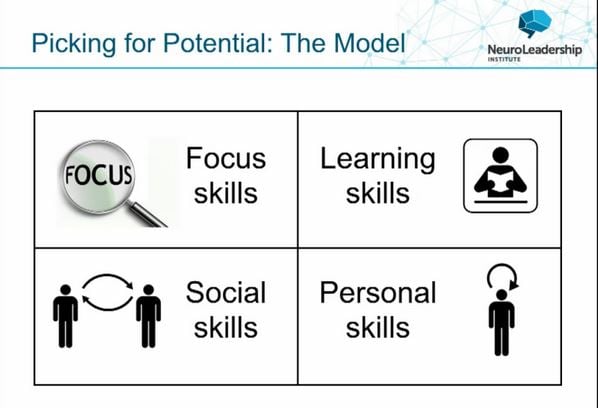3 min read
Personal Leadership Development Plan: Helping Teams Under Stress
IS YOUR TEAM UNDER STRESS?
The following is another lesson from my coaching play book about a leader whose team was...
By: Diane Ring on September 13, 2021

Is your organization struggling to identify and develop your future leaders? If so, you’re not alone.
The Neuroleadership Institute has breakthrough research to help you out. Their review of the research and trends supporting why this topic deservers attention is because:
There is less time to develop the future bench of leaders and we need to pick stars early. Most companies report they are not getting this right or doing a great job with this, yet the demand for future leadership is not going away. A big challenge why this is tough, is that picking your future stars depends on assessing their potential so that you can predict their ability to succeed in the future. Companies more often have models for assessing performance than potential.
Another challenge is that current models are either based in self reporting or manager-based reporting and both are fraught with bias. Research shows that we have a tendency to see ourselves through rose colored glasses , with most people rating themselves at least above average as compared to others. There is also little statistical correlation between how people see themselves and how they are seen.
When Managers are reporting their assessment of talent, it is widely proven that they filter their perceptions through their own beliefs, experience and values, etc. rendering this form of assessment subject to bias.
David Rock, head of the Neuroleadership Institute does not claim to have this challenge licked, but does believe the work they have been doing to develop a new framework, informed by brain research, can shed some insight how to think about and tackle picking future stars better.
Their break through idea is a framework for identifying the desired leadership skills for future leaders understood from a competency and biological perspective. The leadership competency framework proposed that future stars need to possess the potential for includes the skills on the chart below. All of these skills have brain research to help understand the biology behind being able to do them.

Brain science informs us on the challenges organizations are facing to develop these leadership skills.
Learning skills are the easiest to tackle. People can learn ways to manage their attention and generate insights from new information. They can learn to regulate their emotions and techniques for learning spaced-out-over-time vs. cramming-all-at-once.
Social Skills turn out to be the area researchers know the least about the trainability of in healthy, typical adults. Until we learn more, I think it’s safe to say that your future superstars should already demonstrate evidence that they bring these competencies to the plate.
Ring Results will keep you updated on the latest in this important topic as more research comes to surface--don't forget to subscribe to our blog: The Inner Ring!
Interested in learning more about the links between Neuroscience and Leadership? Check out our recent post for resources to learn more about how neuroscience can help you develop your talent.
Have any suggestions for developing future leaders? Tell us below!
Nov 4, 2021by Diane Ring
IS YOUR TEAM UNDER STRESS?
The following is another lesson from my coaching play book about a leader whose team was...
Nov 3, 2021by Diane Ring
There is nothing like a sudden change of executive leadership to trigger all kinds of personality dynamics in a team....
Nov 2, 2021by Diane Ring
More than 70% of executives are not effective at supporting new-to-role peers and managers according the Corporate...